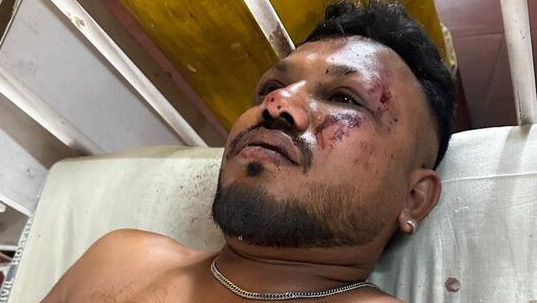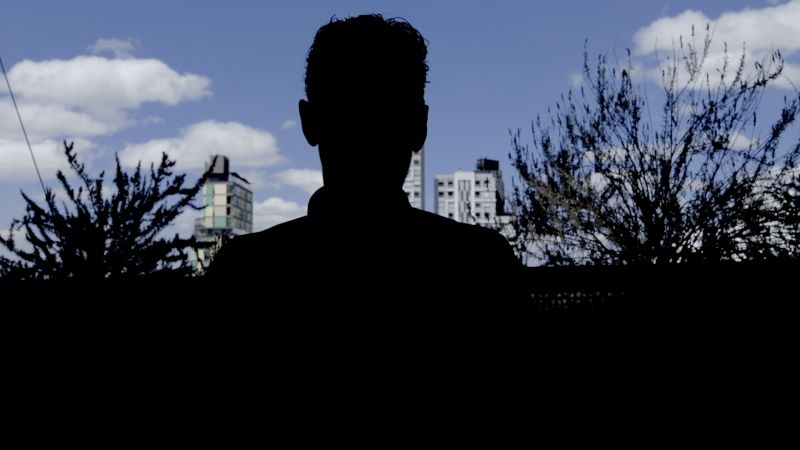When Carlos, an American expat living in Colombia, finally met in person the attractive young woman he had been messaging on a dating app, his apprehension began to melt away.
“When we first met, I had a sort of doubt, but then we somehow decided to go to my apartment to finish watching a football game. Colombia was playing Mexico and we decided to watch the second half at mine,” the single father recalls.
They had a glass of wine and a conversation at his home in Bogota; their chemistry in person seemingly every bit as special as it had been online.
“Then the game ended… and we had a second glass of wine and I remember I felt weird, like heavier in my head. And that’s the last thing I remember.”
Carlos – who asked for his real name to not be used for professional reasons — was so dizzy the next morning that he went to the hospital. Doctors there informed him he had been drugged. It took him days to recover. When Carlos finally returned home, he realized that several of his possessions were missing – including his passport and those of his children.
Carlos is not alone.
While romantic violence, largely targeting women, is not new in Colombia, a recent series of violent incidents in which people looking for love were allegedly assaulted, robbed and in some cases even killed has caught the attention of the US State Department: At least eight “suspicious deaths” of American citizens occurred in the city of Medellin between November and December 2023, according to a warning issued by the US Embassy in Bogota this month about the risks involved with dating apps and meeting strangers alone in an intimate setting.
“Criminals use dating apps to lure victims to meet in public places such as hotels, restaurants, and bars, and then later assault and rob them,” it warned in a security alert published on January 10.
“Numerous US citizens in Colombia have been drugged, robbed, and even killed by their Colombian dates,” it added.
The alert recommends that US citizens in the country “be vigilant, maintain heightened situational awareness, and incorporate strong personal security practices.”
Most online dating applications also offer help lines in case of incidents on dates and share similar tips: always meet your date in public places, especially at the beginning of a relationship, and if you feel pressured to go somewhere private, end the date.
At this point, US officials do not believe the eight deaths are linked, “however, several of the deaths point to possible drugging, robbery and overdose, and several involve the use of dating applications,” the embassy alert said.
US officers have also seen an increase in reports of robbery cases involving online dating apps in the last 12 months, the alert notes.
And it suggests the actual number of victims may be even higher, because “victims are embarrassed and do not want to follow through with the judicial process.”
An anti-nausea medication
Incidents resulting in the death of foreign citizens or tourists in Colombia are relatively unusual – in the last two months of 2022, just one US citizen died in Colombia , in a drowning in the Caribbean coast city of Santa Marta.
But as post-pandemic travel and tourism to the country ramp up, violent crime appears to be rising too. In Medellin alone, thefts committed against foreigners in the third trimester last year increased 200% from the same period in 2022, according to the Embassy.
And in many cases of robbery or kidnapping, criminals use drugs and sedatives to render their victim helpless.
On an average night out in Bogotá or Medellin it’s not uncommon to hear warnings about Burundanga, the Colombian name for scopolamine, a powerful and hard-to-detect alkaloid that in concentrated forms can render a victim unconscious for up to 24 hours and, in large quantities, can cause respiratory failure and death.
Scopolamine is used legitimately and in small quantities as an anti-nausea medication, but criminals have used the narcotic for thefts and robberies for a while: The US Overseas Security Advisory Council (OSAC) has been warning about scopolamine in Colombian tourist hotspots as far back as 2012, stating that up to 50,000 incidents related to the drug were taking place every year in the country. In June 2023, the US State Department said that in Bogota, crimes involving scopolamine appeared to be on the rise.
The effects of the drug can be long-lasting.
‘We want a positive tourism’
He hopes the new scrutiny triggered by the US Embassy alert could change things.
“I understand that Colombia is a country where a lot of crime happens, and I guess crimes like this are seen as small by the authorities… or maybe they don’t have resources to deal with this. But now we’re talking about eight people who have been killed in recent months,” Carlos said.
However, the alert seems to have caused a stir among at least some local authorities. Medellin mayor Federico Gutierrez, for example, told reporters last week that he would like to see more visitors focus on what he described as “positive tourism” than the use of dating apps.
“We want more foreigners to come to Medellin, US citizens, Europeans, whoever, but we want a positive tourism,” he said, when asked about the matter. “People who want to come here to do sex-and-drugs tourism are mistaken.”
One of the first measures Gutierrez passed after taking office on January 1 was to issue a ban on drug consumption in public places. A similar order has also been issued in Cartagena, another tourist hotspot in the Colombian Caribbean coast that has seen a rise in street prostitution and drug-related incidents following the rise in tourism at the end of the pandemic.
“Last year, 482,000 foreigners came to Medellin, so it’s not like everyone who comes to Medellin finds those problems. I guarantee, those who come to Medellin to do positive tourism, to see our culture and visit our museums, our squares, don’t run any risk,” Gutierrez also said.
‘She could have done anything’
Looking back, Carlos says he feels relatively lucky – and relieved that the woman appears to have been acting alone. CCTV footage taken from a nearby shop showed her leaving the apartment by herself carrying his laptop and other electronics.
Things could have turned out much worse. “If you think about it, it’s just scary to be there, drugged, passed out, unable to defend yourself. She could have done anything she wanted,” he said.
While he hasn’t been on any dating apps since then, Carlos does not blame the apps for his experience.
He does, however, feel authorities and society at large need to take a new approach to responding to cases like his.
“Unfortunately, people around me essentially said it was my fault for doing this (going on a dating app). I think that in this time and age this is the way many people meet, and there’s nothing wrong with it. Some people instead made me feel like it was my fault for having looked to meet women this way.”
He says that when he reported the incident to the police, he felt like he was being blamed for not being more cautious.
“[They] essentially were like: ‘Why did you do this, you know it’s dangerous, things like this can happen to you’ instead of taking up their responsibilities,” he said.







































